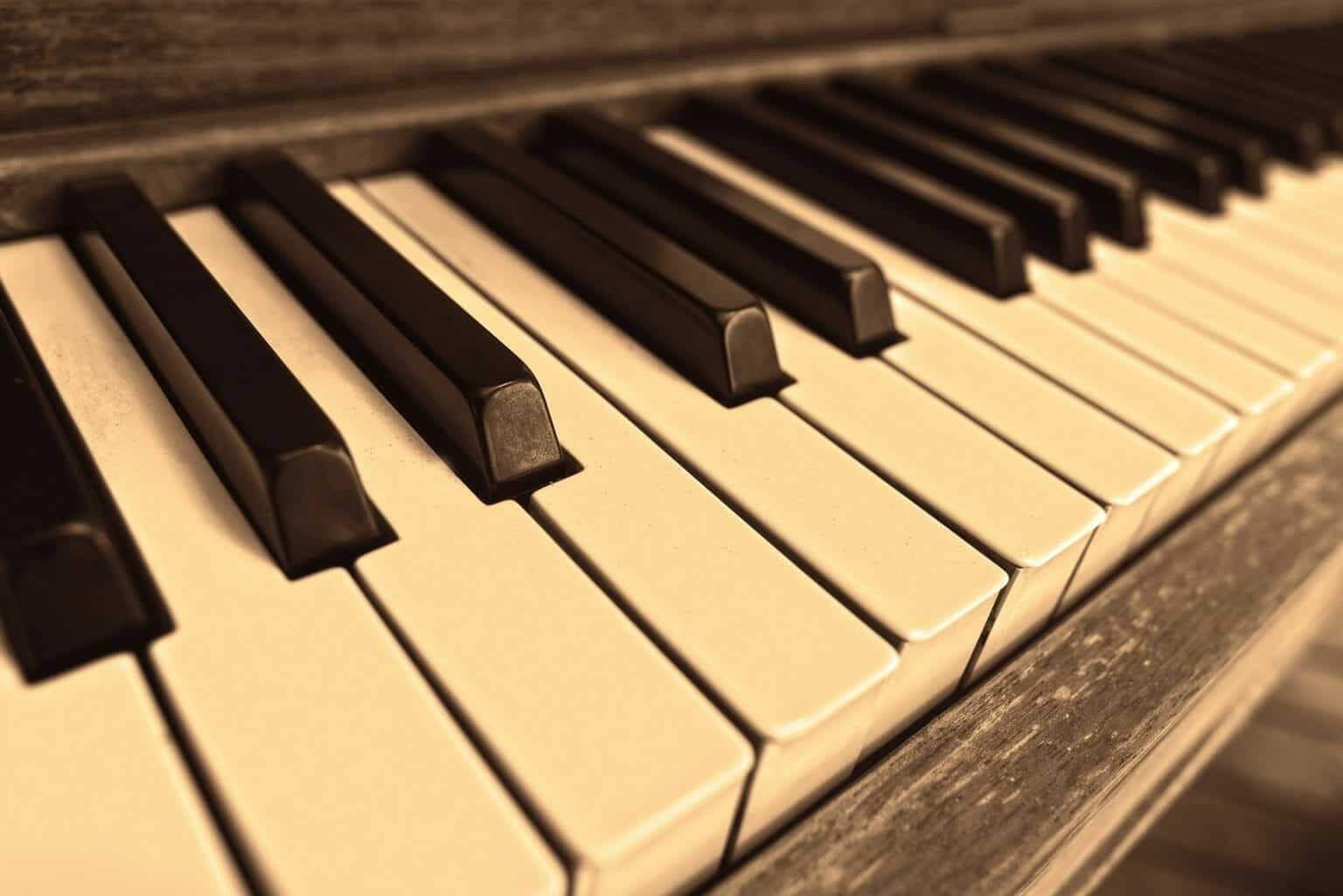How to repair sticking piano keys? It’s a common problem that can plague any piano owner, but don’t fret! A little bit of knowledge and a few simple tools can often fix the issue. Sticking piano keys are often caused by dust, debris, worn-out parts, or improper regulation.
If left untreated, sticking keys can lead to damage to the piano mechanism, uneven sound, and difficulty playing. This guide will help you understand the causes of sticking keys, identify the problem, and provide solutions for common issues.
From basic cleaning and maintenance to addressing specific problems like worn-out key bushings or sticking hammer felt, this guide will equip you with the knowledge and tools to restore your piano to its former glory.
Understanding Sticking Piano Keys

Sticking piano keys are a common problem that can affect the playability and overall performance of your piano. This occurs when a key fails to return to its resting position after being pressed, resulting in a stuck note or an inability to play multiple notes in succession.
Understanding the causes of sticking keys is crucial for addressing the problem effectively. Several factors can contribute to this issue, including dust, debris, worn-out parts, and improper regulation. These factors can lead to various issues with the piano mechanism, impacting its sound and playability.
Common Causes of Sticking Piano Keys
Sticking piano keys are often a symptom of underlying issues within the piano’s mechanism. Identifying the root cause is crucial for selecting the appropriate solution.
- Dust and Debris: Dust, dirt, and other debris can accumulate on the piano keys, hammer shanks, and other moving parts, causing friction and preventing smooth movement. Over time, this buildup can lead to sticking keys, sluggish response, and uneven sound.
- Worn-out Parts: Piano keys, hammers, and other moving parts are subject to wear and tear over time. Worn-out felt, leather, or metal components can contribute to sticking keys, as they may no longer provide the necessary friction or support for proper movement.
- Improper Regulation: Piano regulation involves adjusting the various components of the action to ensure proper function and responsiveness. Improper regulation can lead to sticking keys, uneven touch, and inconsistent sound. This can be caused by factors such as incorrect key depth, hammer alignment, or damper adjustment.
Consequences of Ignoring Sticking Keys
Ignoring sticking keys can lead to further damage to the piano mechanism and affect its performance. It’s important to address this issue promptly to prevent potential complications.
- Damage to the Piano Mechanism: Sticking keys can put extra stress on the piano’s action, leading to further wear and tear on delicate parts like the hammers, key levers, and dampers. This can result in more significant damage and costly repairs in the long run.
- Uneven Sound: Sticking keys can cause uneven sound production, as the hammers may not strike the strings with consistent force. This can result in a muffled or distorted sound, impacting the overall musical experience.
- Difficulty Playing: Sticking keys can make it difficult to play the piano smoothly and accurately. This can be frustrating for pianists and hinder their musical expression. In extreme cases, it can even make it impossible to play certain notes or passages.
Identifying the Problem: How To Repair Sticking Piano Keys

Before diving into repairs, you need to accurately identify the root cause of the sticking keys. This will guide your repair approach and ensure you address the problem effectively.
Visual Inspection
A thorough visual inspection is the first step in diagnosing the issue. Look for any visible signs of wear, debris, or misalignment.
- Keytops:Examine the keytops for any signs of wear, cracks, or debris buildup. Debris can accumulate under the keytops and interfere with their smooth movement.
- Hammer Felt:Carefully observe the hammer felt, which is the material that strikes the strings. Look for any signs of wear, compression, or damage. Worn-out hammer felt can cause sticking or uneven sound.
- Key Action:Inspect the key action, which is the mechanism that connects the keys to the hammers. Look for any signs of misalignment, broken parts, or excessive friction. Misalignment can cause keys to stick or bind, while broken parts can prevent the keys from moving freely.
Basic Cleaning and Maintenance
Regular cleaning and maintenance are crucial for keeping your piano in optimal condition and preventing sticking keys. Dust, grime, and other debris can accumulate on the keys and moving parts, hindering their smooth operation.
Cleaning the Keys and Surrounding Area
Cleaning the keys and the surrounding area involves removing dust, dirt, and other debris that can accumulate over time. It’s important to use a soft cloth and an appropriate cleaning solution to avoid damaging the finish of the keys.
- Use a soft, lint-free cloth to gently wipe down the keys, removing any dust or debris.
- For stubborn stains, you can use a mild cleaning solution, such as a mixture of distilled water and a few drops of mild dish soap.
- Apply the cleaning solution to the cloth, not directly to the keys, and gently wipe them down.
- After cleaning, wipe the keys with a clean, dry cloth to remove any remaining moisture.
Lubricating Moving Parts
Lubricating the moving parts of the piano, such as key bushings and hammer shanks, is essential for ensuring smooth operation and preventing sticking keys.
- Specialized piano lubricant is recommended for this purpose, as it is formulated to be safe for piano parts and prevent gumming or clogging.
- Apply a small amount of lubricant to the key bushings and hammer shanks, ensuring that it reaches all moving parts.
- Avoid over-lubricating, as this can attract dust and debris, leading to problems.
Addressing Specific Issues

Now that you’ve identified the source of the sticking keys, it’s time to tackle the problem. The repair method will depend on the specific issue causing the sticking.
Repair Methods for Different Sticking Key Problems, How to repair sticking piano keys
The following table Artikels common sticking key issues and their respective repair methods:
| Issue | Solution |
|---|---|
| Worn-out key bushings | Replacing the bushings with new ones. |
| Debris buildup under the keys | Carefully removing the debris using a soft brush and compressed air. |
| Sticking hammer felt | Cleaning the hammer felt with a specialized felt cleaner or replacing it if severely worn. |
| Misaligned key action | Adjusting the key action by a qualified technician. |
Preventive Maintenance
Just like any other instrument, a piano requires regular maintenance to keep it in top condition and prevent problems like sticking keys. A well-maintained piano will not only sound better but will also last longer.
Importance of Regular Maintenance
Regular piano maintenance is essential for ensuring your piano functions properly and lasts for years to come. This includes dusting, cleaning, and tuning.
- Dusting:Dust can accumulate on the keys, hammers, and other parts of the piano, leading to sticking keys, uneven sound, and even damage. Dusting your piano regularly with a soft cloth will help prevent this.
- Cleaning:Cleaning your piano regularly will help to remove dirt and grime that can build up over time. You can use a damp cloth to clean the keys, and a vacuum cleaner with a brush attachment to clean the inside of the piano.
- Tuning:Tuning your piano regularly is essential for maintaining its pitch and sound quality. A piano should be tuned at least once a year, or more often if it is played frequently.
Preventing Sticking Keys
Sticking keys are a common problem that can be caused by a variety of factors, including dust, dirt, humidity, and wear and tear. By following these tips, you can help prevent sticking keys and keep your piano playing smoothly.
- Keep the piano in a clean and dry environment:Dust and dirt can accumulate on the keys and other parts of the piano, leading to sticking keys. Keeping your piano in a clean and dry environment will help to prevent this.
- Avoid excessive humidity:Humidity can cause the piano’s wood to swell, which can lead to sticking keys. If you live in a humid climate, you may want to consider using a humidifier to control the humidity levels in your home.
- Use a piano cover:A piano cover will help to protect your piano from dust, dirt, and other debris.
- Avoid placing the piano near heat sources:Heat can cause the piano’s wood to warp, which can lead to sticking keys. Avoid placing your piano near radiators, fireplaces, or other heat sources.
Keeping the Piano Environment Ideal
Creating an ideal environment for your piano can help prevent sticking keys and ensure its longevity.
- Temperature:Ideally, your piano should be kept in a room with a temperature between 68°F and 72°F (20°C and 22°C).
- Humidity:The ideal humidity level for a piano is between 40% and 50%.
- Sunlight:Direct sunlight can damage the piano’s finish, so it’s best to keep it out of direct sunlight.
When to Seek Professional Help
While most sticking key issues can be addressed with basic cleaning and lubrication, some situations require the expertise of a professional piano technician. This section will guide you on when to seek professional help.
Recognizing When Professional Assistance is Necessary
There are several situations where it’s advisable to call a professional piano technician. These situations indicate that the problem is beyond your ability to fix and may require specialized tools and knowledge.
- When the problem is beyond simple cleaning and lubrication:If you’ve attempted basic cleaning and lubrication, but the keys continue to stick, it might be a sign of a more complex issue. This could involve worn or damaged parts, misalignment, or other mechanical problems that require professional intervention.
- When the keys are severely damaged or worn:If the keys are chipped, cracked, or have significant wear, it’s best to consult a technician. Attempting to repair these issues yourself can worsen the problem and may even damage other parts of the piano.
- When there are other mechanical issues affecting the piano’s performance:If you notice other issues with the piano’s performance, such as uneven sound, unresponsive keys, or a noisy action, it’s a good idea to have a technician examine the piano. These issues could be related to sticking keys or could indicate a more widespread problem that requires professional attention.
Closing Notes
By following these steps, you can effectively address most sticking piano key problems. Remember, regular maintenance is key to preventing sticking keys and ensuring your piano plays beautifully for years to come. While most issues can be tackled with simple solutions, always seek professional help if you encounter complex problems or suspect damage to the piano’s mechanism.
FAQ Explained
Can I use any type of lubricant for my piano?
No, it’s crucial to use specialized piano lubricant. Regular oil or grease can attract dust and damage the delicate piano mechanism.
What if I don’t have compressed air?
You can use a soft brush and a gentle vacuum cleaner with a brush attachment to remove debris from under the keys. Be careful not to apply excessive pressure.
How often should I clean my piano?
It’s recommended to dust your piano regularly and perform a thorough cleaning at least once a year.
What are the signs of a severely worn-out key bushing?
You’ll likely notice excessive key wobble, difficulty pressing the key down, or a squeaking sound when playing.